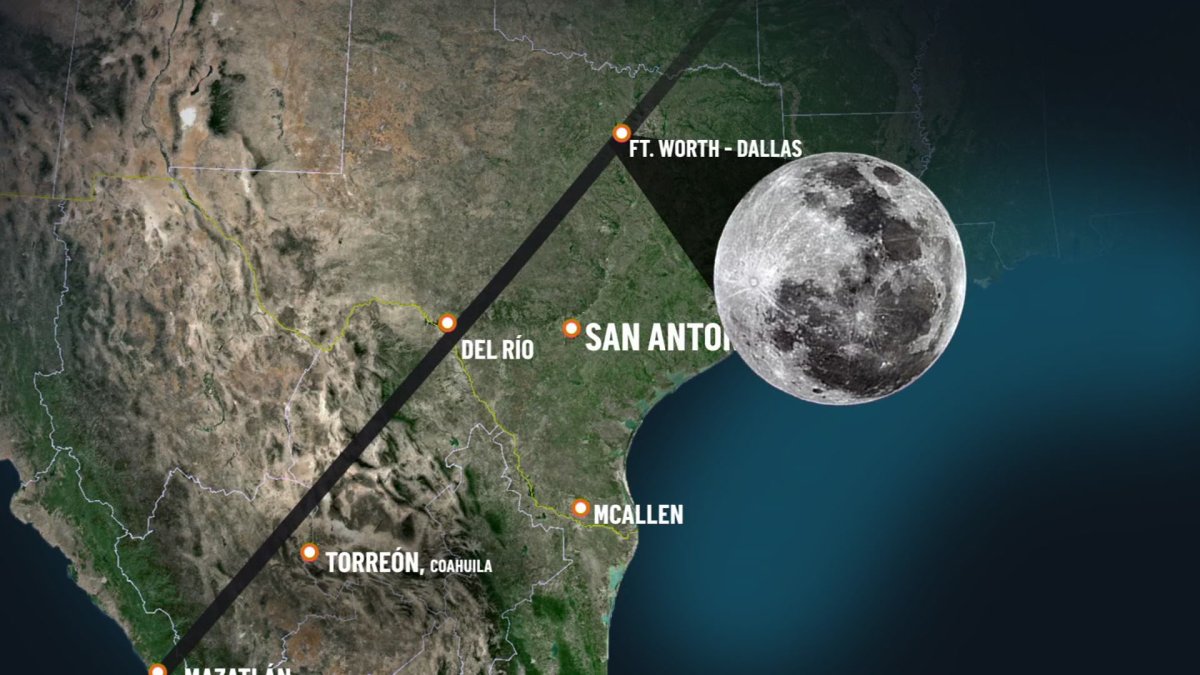A major increase in traffic is expected as Texans and visitors across the state travel to witness the rare total solar eclipse on April 8.
Texas will be center stage for this rare event. It will be the first total solar eclipse over Texas since 1878, and the last total eclipse viewable from the U.S. until 2045, scientists say.
According to TxDOT, with 480 miles of Texas within the path of totality, there could be heavy traffic before, during and after the event. Multiple state agencies are working together to prepare for emergency response and increased traffic.
“Many Texans will be able to see a total solar eclipse from their backyards,” said Matthew Heinze, TxDOT emergency management coordinator. “And residents of neighboring states and other counties will travel here to see it, resulting in additional vehicles on state roads. Projections say there could be up to a million people who travel to, through and within Texas to get to the path of totality to see the eclipse.”
TxDOT says they have been planning a statewide operation for two years to ensure traffic flows as smoothly and safely as possible.
Here’s how you can help prepare.
What can you do to be ready for the solar eclipse?
- Expect heavier-than-usual traffic in the days before, during and after the eclipse, especially on major corridors near the path of totality.
- Leave early and plan your route. Your drive may take longer than predicted. DriveTexas.org has up-to-date traffic conditions.
- Find a safe, designated space to park before the eclipse. Do not stop in the middle of the road or on a road shoulder.
- “Drive friendly, the Texas way.” Bring a calm and courteous attitude on the road with you.
- Enjoy the beautiful wildflowers that will be in bloom, but don’t drive over or trample them, so they can grow back next year.
- Don’t let litter eclipse Texas. Dispose of all waste in a proper trash can.
What time will the 2024 eclipse happen?
According to NASA, the path of the eclipse continues from Mexico, entering the United States in Texas, and traveling through Oklahoma, Arkansas, Missouri, Illinois, Kentucky, Indiana, Ohio, Pennsylvania, New York, Vermont, New Hampshire, and Maine. Small parts of Tennessee and Michigan will also experience the total solar eclipse
Several Texas cities will be in the path of totality, including Dallas, most of Fort Worth, Waco, Temple, most of Austin and parts of San Antonio. Denton is outside the path of totality.
In Dallas, the moon will begin to cover the sun around 12:23 p.m., with totality beginning around 1:40 p.m. and ending just under 4 minutes later. The moon will then move away from the sun, with the spectacle ending around 3:02 p.m. Exact timing will depend on location in the metroplex.
- Eagle Pass: 1:27 p.m.
- Uvalde: 1:29 p.m.
- San Antonio: 1:33 p.m.
- Austin: 1:36 p.m.
- Waco: 1:38 p.m.
- Dallas and Fort Worth: 1:40 p.m.
- Tyler: 1:43 p.m.
- Texarkana: 1:46 p.m.
For information on travel plans, visit Travel Texas.










